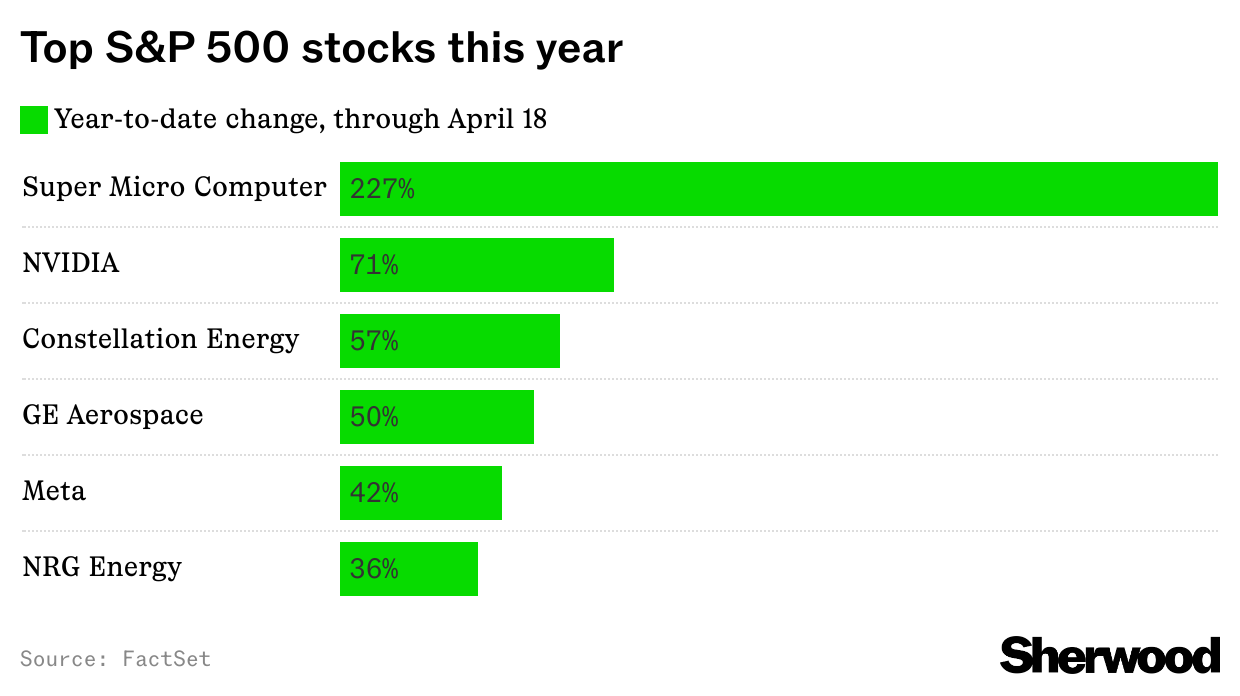Wednesday Sep.23, 2020
🚲 The “Prime” Peloton knockoff that wasn't
_Echelon is to Peloton as McDowell's is to McDonald's_
Hey Snackers,
In a lovely example of tech companies doing way too much, Microsoft has created a "virtual commute" for Teams. Hope there's no web traffic jam on IP-101 on your way to the Address Bar.
Stocks ticked up yesterday as heavy-hitter Amazon led Big Tech shares higher.
Knockoff
Echelon launches "Prime Bike," claiming a partnership with Amazon
Sounds familiar... Echelon is a connected fitness spin bike company that looks (and sounds) a lot like Peloton — serious knockoff vibes. Also: it's the code name of a top-secret government surveillance program (unrelated — we think). Echelon claimed it teamed up with Amazon to launch a $499 "Prime Bike," peddling it as Amazon's 1st-ever connected fitness product. Unsurprisingly, that generated some buzz. Two things:
- Echelon is making the bike, but said it was “developed in collaboration with Amazon” and only available to Prime subscribers. Awk, because Echelon is selling a nearly identical $499 bike on Walmart. The only apparent difference: it says "Sport" on the side instead of "Prime."
- Peloton stock fell on the news. The bike costs $1.5K less than Peloton's flagship model. But it doesn't have a screen, so you have to stream classes from Echelon's app on a phone/tablet.
Because Peloton wasn't enough... Echelon tried to knock off Prime, too (bold move). Yesterday evening, Amazon immediately stopped selling the bike, saying it "is not an Amazon product or related to Amazon Prime.” Echelon deleted its press announcement real quick.
If you can stream it, you can do it... Streaming has democratized plenty, including workouts. Instead of spending $2K on a fancy-screen Peloton, you can spend $499 on Echelon and then ironically stream Peloton classes from your phone (Peloton app membership = $13/month). Price is why Echelon's (misleading) bike is already sold out. Peloton's sales tripled last quarter, but it's brand strength will be tested by these cheaper look-alikes.
Clean
Big banks knowingly moved billions in criminal money, according to new reports
Drug cartels, trafficking rings, money launderers and terror networks... Sounds like the premise of every Netflix show — actually the criminal groups that big banks enabled, according to new investigative reports by BuzzFeed and others. JPMorgan Chase, HSBC, and Deutsche Bank were among those implicated in (drumroll please)...
- “The FinCEN Files”: These secret documents allegedly reveal how bank giants moved trillions of $$$ in suspicious transactions, helping criminals launder money.
- Money laundering: The (very illegal) practice of making “dirty money” clean by passing it through legit transfers/transactions.
A bad case of "filed away"... Banks are required to report large cash transactions and suspicious activities through SARS (aka: Suspicious Activity Reports). Then, FinCEN — the Financial Crimes Enforcement Network of the Treasury Department — is supposed to share that info with law enforcement, regulators, etc. who enforce the law (if necessary). While banks raised red flags, they still continued processing suspicious transactions.
We need better oversight... Money laundering enables terrible crimes, and legit institutions have enabled money laundering. As long as a bank files a SAR, it essentially immunizes itself from criminal prosecution. It could file one and still accept a sketchy transaction. The FinCEN Files include over 2,000 SARS, not all of which are necessarily reflective of actual crimes — but some were, and the banks and FinCEN didn't stop them.
Flop
Quibi is reportedly exploring a sale after solving a problem that was already solved
Adorable name... not-so-adorable turnout. Quibi is different from its other streaming peers, like Hulu, Vudu, Roku, and Fubo (although...we sense a trend). The mobile-first short video startup — short for "quick bites" — raised a gargantuan $1.75B before launching in April. It's the brainchild of Dreamworks founder Jeff Katzenberg, so expectations were high. Fast forward...
- Quibi has failed to live up to the hype. It's reportedly falling majorly short of its paid subscriber targets (even with the 90-day free trial).
- It's also dealing with a lawsuit regarding its key "Turnstyle" feature, which lets you seamlessly switch between horizontal and vertical phone viewing.
- Now, Quibi is reportedly exploring cash-raising options, including selling itself or merging with a SPAC (aka: a "blank check" company) to go public.
That awkward in-between spot... With its 8-minute episodes, Quibi sits between short user-generated videos (on Snap, Insta, TikTok) and long-form studio content (on Netflix, Disney+, etc.). It costs $5/month with ads and $8/month without — less than Netflix, but more than Disney. Despite star-studded shows and high-quality production, it seems many haven't found it compelling enough to pay for.
Quibi solved a problem that was already solved... Quibi execs love pointing out that it was created for “in-between moments,” like that 6-minute subway ride.
- They've blamed poor performance on the pandemic, saying the lack of commuting didn't leave any space for those mobile-centric moments.
- But social media and gaming apps have never had higher engagement. They've long capitalized on our extra-short attention spans, solving the "in-between" problem better (and for free). That leaves little room for Quibi.
What else we’re Snackin’
- Stitches: Stitch Fix stock plunged over 16% after the subscription styling service revealed it lost $44M last quarter.
- Accelerate: Online used car seller Carvana says it expects to see record sales this quarter — the stock revved up 30%.
- Score: Barstool's betting app beat DraftKings' gambling app download record in its opening weekend (a win for owner Penn National Gaming)
- Gamer: Microsoft is buying Fallout video game-maker Bethesda and its parent company for $7.5B in cash.
- Swoosh: Nike reported better-than-expected sales growth courtesy of demand rebounding in China.
🍪 Thanks for Snacking with us! Want to share the Snacks? Invite your friends to sign up here.
Wednesday
- The GoodRx IPO
- Earnings expected from General Mills
Disclosure: Authors of this Snacks own shares of Amazon, JPMorgan Chase and Stitch Fix
ID: 1340850
.png)

